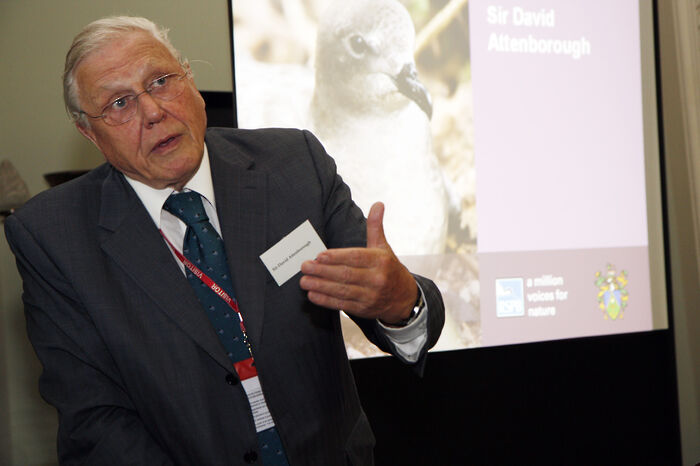We must all do our bit for the planet, despite Trump’s ignorance
“It’s a bottom up approach, and I for one like the idea of the world’s peoples coming together”

From Swansea to Shanghai, Sydney to Seoul, the world is separating rubbish, reusing plastic bags – all doing their bit in the global fight against climate change, the greatest threat facing humanity. Even China, the world’s environmental bad boy burning more coal than the rest of us together, has ambitious plans to cut greenhouse gas emissions. Contrast Trump who said, out loud, “The concept of global warming was created by and for the Chinese in order to make U.S. manufacturing non-competitive.” Of course he did.
Come on now, Trump. The overwhelming majority of the world’s scientists and organisations have found the evidence that global warming is caused by human activity to be unequivocal. But the man who brought us The Apprentice and Trump University isn’t having it – no, he’s pulling America out of the Paris climate accord and dismantling Barack Obama’s Clean Power Plan aimed at cutting American carbon dioxide emissions by 32% by 2030 from 2005 levels. So is Trump a complete idiot, a pathological liar, in thrall to Big Oil, or all of the above? In truth, it doesn’t really matter; if Trump has taught us anything, it’s don’t bother looking to America for leadership – it’s up to the rest of the world to figure this mess out.
“I for one like the idea of the world’s peoples coming together”
So if America, the second largest carbon dioxide emitter, refuses to play ball, who are the climate change good guys paving the way for a cleaner and better future? Surprisingly, and hats off to our fellow Brits, Wales ranked fourth in the World Economic Forum’s table of recycling countries. With a target of zero waste by 2050, Wales is predicted to overtake Germany as global recycling leader as early as this year. While Europe accounts for most of the world’s top ten recycling nations, Asian countries are also taking strides in the right direction. Taiwan and South Korea both rank in the top ten with their long-established “pay as you throw” systems charging households and businesses by volume of waste generated.
Meanwhile individuals the world over are being urged to reduce their carbon footprint by taking public transport instead of driving, or walking or cycling, using utility companies that get their power from wind or solar energy sources. It’s a bottom up approach, and I for one like the idea of the world’s peoples coming together, doing what they can towards a common goal.
“China is fast developing clean energy technology as it plans to cut fossil fuel consumption”
But just how significant is the aggregate of millions of individual green actions? According to the late Professor David MacCay, Trinity NatSci alumnus, Regius Professor of Engineering at Cambridge and acclaimed author of Sustainable Energy Without The Hot Air, not very. To quote, “Don’t be distracted by the myth that ‘every little helps’. If everyone does a little, we’ll achieve a little. We must do a lot. What’s required are big changes in supply and demand.” MacCay pointed to electric vehicles as being four times as energy efficient as fossil fuel vehicles and to wind, nuclear and solar power as having the greatest potential in the battle against climate change. But, he cautioned, to produce sufficient power to match consumption, the new power facilities that must be built will need to be huge.
Of the nations capable of taking the huge steps that are needed, China, the largest emissions culprit, as described by President Xi, is acting if not as leader, then at least as torch-bearer in the fight against climate change. In December 2017, China announced plans for the world’s largest carbon trading market which, with other policies, should allow China’s emissions to peak by 2030. China is fast developing clean energy technology as it plans to cut fossil fuel consumption. China and India, who both stand to suffer from the devastating consequences of climate change, have confirmed their commitment to the Paris agreement. As the biggest and third biggest carbon dioxide emitters, the move is welcome, particularly given fears in both countries that cuts in cheap energy use would hold back development. Even in America, there is hope, as hundreds of American mayors and state governors have vowed to continue the fight against climate change, adopting policies similar to those in the Paris accord, filling the void left by Trump’s abandonment of the treaty.
America is virtually alone in rejecting the Paris climate change agreement, which puts it in the dubious company of Syria and Nicaragua. But the next US presidential election is only two years away – we needn’t despair yet. And while countries from Wales to India and China prioritise green technology, the rest of us may as well do what we can. It may be a drop in the ocean – but at least it’s a drop
 Interviews / You don’t need to peak at Cambridge, says Robin Harding31 December 2025
Interviews / You don’t need to peak at Cambridge, says Robin Harding31 December 2025 News / Unions protest handling of redundancies at Epidemiology Unit30 December 2025
News / Unions protest handling of redundancies at Epidemiology Unit30 December 2025 Comment / What happened to men at Cambridge?31 December 2025
Comment / What happened to men at Cambridge?31 December 2025 Features / ‘Treated like we’re incompetent’: ents officers on college micromanagement30 December 2025
Features / ‘Treated like we’re incompetent’: ents officers on college micromanagement30 December 2025 Theatre / We should be filming ADC productions31 December 2025
Theatre / We should be filming ADC productions31 December 2025








